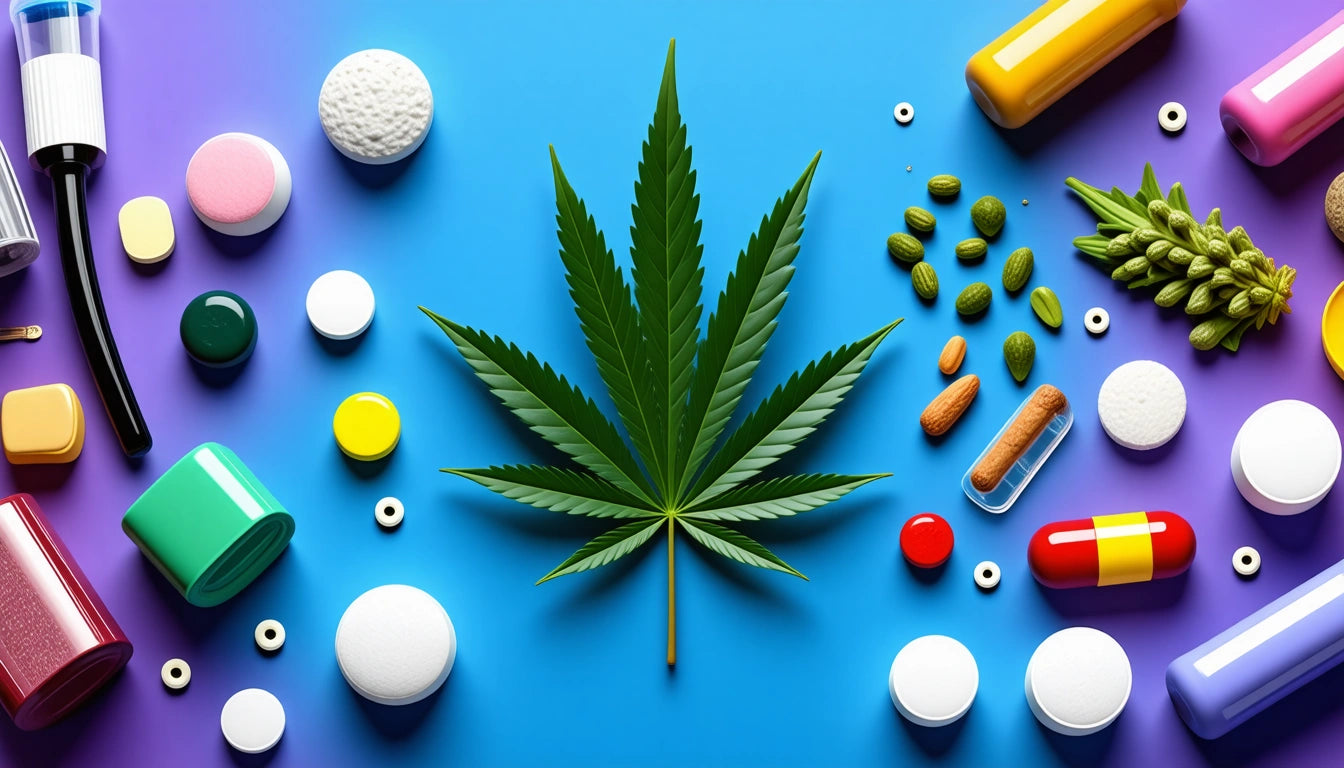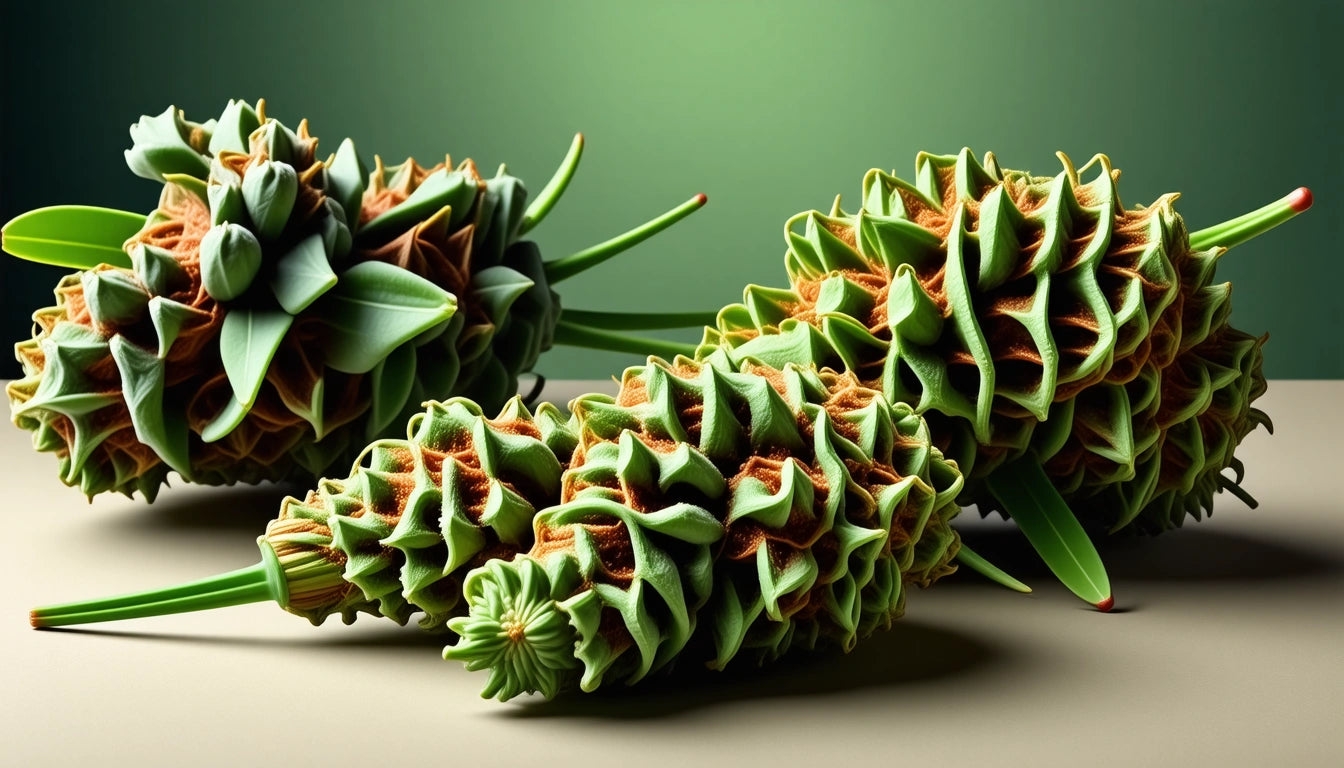Table of Contents
- THC Basics: The Primary Psychoactive Compound
- Different THC Compounds and Their Effects
- How THC Works in Your Body
- THC Dosage: How Much Gets You High?
- THC vs. THCA: Understanding the Difference
- Alternative Consumption Methods and Their Effects
- Future Implications of THC Research and Consumer Education
Understanding THC: What Gets You High and How It Works
Cannabis contains over 100 cannabinoids, but tetrahydrocannabinol (THC) stands out as the primary compound responsible for the plant's psychoactive effects. With the expanding cannabis market and emergence of various THC forms, consumers often wonder which types of THC produce intoxicating effects, how much is needed, and exactly how these compounds interact with the body.
THC Basics: The Primary Psychoactive Compound
Delta-9-THC is the most abundant and well-known cannabinoid in cannabis that produces the characteristic "high" sensation. When consumed, THC temporarily alters brain function by binding to cannabinoid receptors, primarily in areas controlling pleasure, memory, thinking, concentration, movement, coordination, and sensory and time perception.
According to research on THC effects, the compound can produce feelings of euphoria, relaxation, altered sensory perception, and in some cases, anxiety or paranoia. The intensity and quality of these effects vary based on several factors including dosage, consumption method, individual tolerance, and the specific cannabis strain.
Different THC Compounds and Their Effects
Delta-8 THC
Delta-8 THC has gained popularity as a hemp-derived compound. It does get you high, though its effects are generally described as milder than Delta-9 THC. Many users report a clearer head high with less anxiety and paranoia. Despite being derived from hemp, Delta-8 produces psychoactive effects and will show up on drug tests.
Delta-9 THC
This is the primary form of THC found in cannabis and produces the strongest psychoactive effects. High-THC cannabis strains can contain upwards of 30% Delta-9 THC, delivering potent effects even in small amounts.
THCP
THCP (tetrahydrocannabiphorol) is a recently discovered cannabinoid that does get you high, potentially with even greater potency than Delta-9 THC. Research suggests THCP binds to cannabinoid receptors more strongly than Delta-9, though further studies are needed to fully understand its effects.
THCV
Tetrahydrocannabivarin (THCV) produces psychoactive effects at high doses but may actually act as an antagonist at lower doses. Its high is often described as stimulating and clear-headed, with a faster onset and shorter duration than Delta-9 THC.
How THC Works in Your Body
THC produces its effects by interacting with the body's endocannabinoid system (ECS), a complex cell-signaling system that plays a role in regulating various functions including mood, memory, appetite, and pain sensation.
When consumed, THC molecules bind primarily to CB1 receptors in the brain and central nervous system. This binding disrupts normal endocannabinoid signaling, resulting in the psychoactive effects associated with cannabis use. The process requires proper preparation of cannabis, which is why many consumers use specialized grinding equipment to properly break down flower for optimal cannabinoid release when smoking or vaporizing.
THC Dosage: How Much Gets You High?
The amount of THC needed to produce psychoactive effects varies significantly between individuals. Studies on THC dosage suggest that for inexperienced users, as little as 2-3mg of THC can produce noticeable effects, while regular consumers may require 10mg or more to achieve the same intensity.
Low-Percentage THC Products
Products containing 0.3% THC or less (the federal legal limit for hemp) generally won't produce psychoactive effects in most people when used as directed. However, consuming large quantities of such products could potentially result in enough THC accumulation to produce mild effects in sensitive individuals.
- Microdoses (1-2.5mg): Subtle effects, often below the threshold of feeling "high"
- Low doses (2.5-5mg): Mild euphoria and relaxation
- Moderate doses (5-15mg): Full psychoactive effects
- High doses (15-30mg+): Intense effects, potential for anxiety or discomfort
THC vs. THCA: Understanding the Difference
THCA (tetrahydrocannabinolic acid) is the precursor to THC found in raw cannabis plants. By itself, THCA does not get you high because it cannot effectively bind to cannabinoid receptors in its acidic form. Research on THCA confirms it lacks the psychoactive properties of THC.
When cannabis is heated through smoking, vaping, or cooking (a process called decarboxylation), THCA converts to THC, becoming psychoactive. This is why eating raw cannabis won't produce intoxicating effects, while consuming decarboxylated cannabis will.
Alternative Consumption Methods and Their Effects
Topicals and Transdermal Products
THC topicals like creams and balms typically don't get you high because the cannabinoids don't enter the bloodstream in significant amounts. However, transdermal THC patches are designed to deliver cannabinoids directly into the bloodstream and can produce psychoactive effects, though often milder and more gradual than inhaled or ingested THC.
THC Beverages
THC-infused drinks do get you high, with effects similar to edibles. The onset may be somewhat faster than traditional edibles due to partial absorption through the tissues of the mouth and stomach, but the experience is generally comparable.
Future Implications of THC Research and Consumer Education
As our understanding of THC and its variants continues to evolve, so too will product development and consumer education. Research on THC percentages shows that consumers are becoming more sophisticated in their understanding of cannabis potency.
Rather than simply seeking the highest THC content, many consumers are now considering the entourage effect, terpene profiles, and specific cannabinoid ratios. This trend toward more nuanced cannabis consumption suggests that future products will likely focus on tailored experiences rather than maximum potency.
As research continues, we'll likely discover more about how different THC compounds interact with our bodies and how factors like individual genetics influence these interactions. This knowledge will help consumers make more informed choices about which cannabis products best suit their needs and preferences.











Leave a comment
All comments are moderated before being published.
This site is protected by hCaptcha and the hCaptcha Privacy Policy and Terms of Service apply.